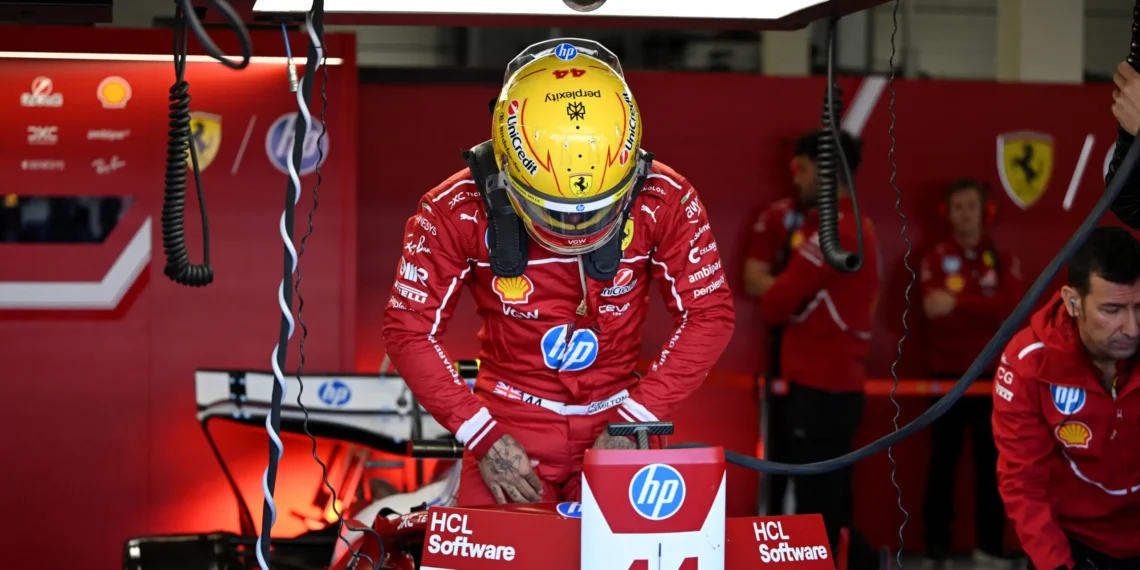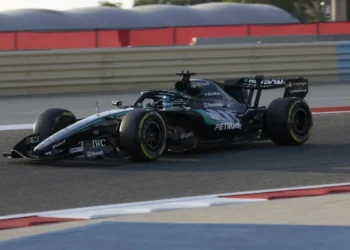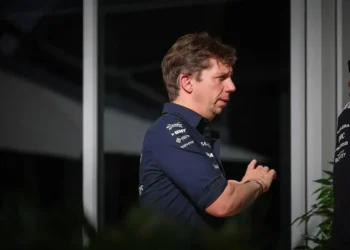Lewis Hamilton: The Time for Change in F1 Contracts is NOW!
In a bold and impassioned appeal, seven-time World Champion Lewis Hamilton has thrown down the gauntlet, demanding a seismic shift in Formula 1’s archaic contract system that leaves drivers shackled and voiceless. As F1 experiences an explosive surge in commercial success, Hamilton insists the sport must adapt to allow its stars the freedom to engage with rival teams—something he argues is essential for the evolution of the sport itself.
The 40-year-old British icon is no stranger to pushing boundaries, having established himself as a formidable advocate for change both on and off the track. Since launching the Hamilton Commission in 2020, he has fought tirelessly to address the glaring underrepresentation of Black individuals and minorities within motorsport and STEM fields. This groundbreaking initiative paved the way for F1’s inaugural Diversity & Inclusion charter, a monumental commitment embraced by all ten teams and the FIA, aimed at creating fairer opportunities for all.
But Hamilton’s vision stretches far beyond diversity; he has also emerged as a fierce champion for human rights and environmental sustainability. His unwavering focus on the conditions in host nations, coupled with a call for urgent environmental action, has placed him at the forefront of activism within the sport. Through his charitable endeavors—Mission 44 and Ignite—he continues to drive initiatives promoting STEM education and inclusion for underrepresented youth.
In a revealing interview, Hamilton was asked about the legacy he hopes to leave behind as he contemplates retirement. But in a surprising twist, he deflected the question, emphasizing that personal accolades are not his priority. “No, that’s not my goal – that’s not what I’m focused on,” he stated emphatically to RTBF. “What I focus on is what I can contribute concretely.”
Hamilton’s commitment to nurturing the next generation of F1 talent is evident. He is adamant about evolving the sport from within, stating, “I also think that the F1 system needs to evolve.” He criticized the current restrictive contracts that not only bind drivers but also stifle open dialogue between teams. “Drivers are bound by contracts that prevent them from talking to other teams. They can’t even talk to other teams,” he lamented, highlighting a critical flaw in the sport’s structure.
As F1 revenues skyrocket from £700 million to over £3 billion, Hamilton points out a glaring disparity—employee salaries have not seen a proportional increase. His comments come on the heels of a high-profile transition from Mercedes to Ferrari, a move that remains to be seen as beneficial on the track. However, Hamilton’s ambitions for reform extend beyond just driver contracts.
“There is still a significant lack of diversity in the paddock,” he asserted, underscoring the need for comprehensive changes within the sport. Drawing parallels to past drivers like Niki Lauda, who fought for improved safety, he stressed the importance of creating access and opportunities for all.
As F1 venues continue to host races around the globe, Hamilton urged for responsibility, emphasizing the need for better waste management practices. “When we visit all these countries, we must avoid leaving a mess behind,” he stated passionately. He advocates for sustainable practices such as upcycling and efficient food redistribution, emphasizing that “there are so many positive things we can do here.”
“Not everything has been done yet, and that’s normal. It’s not about being perfect, but about making progress every year,” Hamilton declared. His unique position allows him access to influential figures, from the Prime Minister of the United Kingdom to international leaders, enabling him to spark critical conversations that could reshape the future of motorsport.
Hamilton’s relentless pursuit of change, despite criticism to “shut up and drive,” exemplifies his commitment to using his platform effectively. “I drive, yes, but I also do more,” he stated resolutely. “I can enter important rooms and have difficult conversations. That’s just how I am, and that’s how I’ll continue to be.”
As the winds of change blow through Formula 1, Hamilton’s clarion call for evolution is not just a plea; it’s a demand for a future where freedom, equality, and sustainability are at the forefront of the sport. The question remains: will F1 heed this urgent call for reform, or will it remain shackled to outdated practices?










